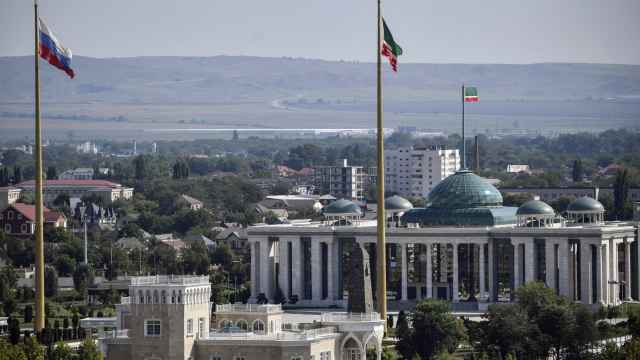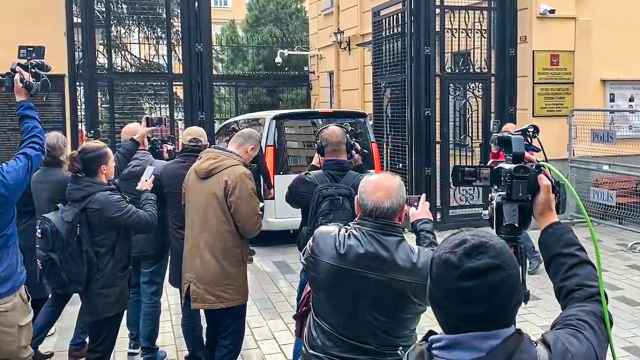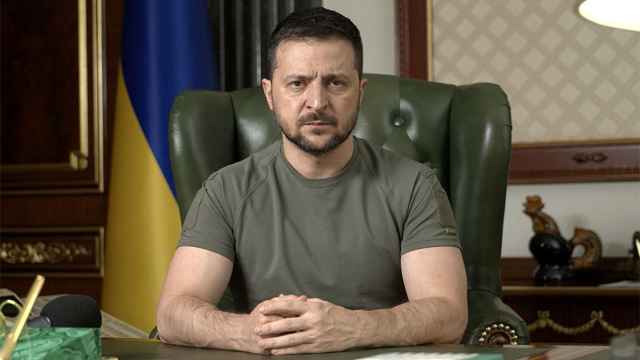The Russian media discussed Kudrin’s dismissal even more enthusiastically than it did the news of the tandem switch announced at United Russia’s convention on Sept. 24.
Among the many accusations leveled at Kudrin was that he had withheld the government’s oil and gas windfall in conservative savings instruments rather than pumping those funds into the economy to fund infrastructure projects.
But as one member from the early team of young reformers in the 1990s told me: “Those accusations are groundless. Kudrin is a liberal, and that means he is opposed in principle to state investments. Since he retained his post for 11 years, that means the top leadership needed such a finance minister. Perhaps the economic priorities have changed.”
In the wake of the castling move in the ruling tandem and Kudrin’s resignation, Odnako magazine released three special issues dedicated to the theme of Russia’s “new industrialization.” Odnako is edited by journalist and analyst Mikhail Leontyev, who also anchors a television program by the same name on government-controlled Channel One.
Russians, having become acquainted in the 2000s with the now-conservative Leontyev, easily forget that he was actually one of the country’s most radically liberal economic journalists of the late 1980s and 1990s.
It sometimes seems to me that Leontyev’s words express exactly what Prime Minister Vladimir Putin is thinking, although in a more caustic and polemical form. The three special issues of Odnako represent a fundamental ideological argument in favor of changing Russia’s liberal economic course to dirigisme and shifting from free trade to protectionism. These arguments are devoid of sentimental nostalgia or Communist rhetoric. On the contrary, they are very pragmatic.
Leontyev’s stance is a reflection of a larger popular mandate to support a long overdue rejection of neoliberal economic policy. But as everyone knows, the devil is in the details.
In a round-table interview with several regional newspapers, Vitaly Shlykov, the country’s leading expert on military economics, called Kudrin’s dismissal “a courageous act of self-sacrifice protesting mindless government spending, primarily for defense.” In the early 1990s, as deputy defense minister in the first Yeltsin administration, Shlykov developed a program of radical market reforms — diametrically opposed to those proposed by then-Deputy Prime Minister Yegor Gaidar — for converting the military-industrial complex. Shlykov resigned after Yeltsin adopted a program put forward by the young reformers that he considered sheer folly.
Today, Shlykov supports Kudrin’s position because the Kremlin’s plan to double military expenditures over the next three years is unprecedented. This kind of increase is normally seen only during wartime. But President Dmitry Medvedev has not explained how the budget can support such an increase.
Instead, the increase in military spending is motivated by a populist desire to show Russians and the West that Russia can still build lots of rockets, just like in the Soviet era. But nobody discusses whether those rockets are needed or which weapons are actually required to restore the country’s defensive capabilities. For Shlykov, Kudrin’s protest generates hope that a serious and professional debate on these issues will be held and that sober, prudent minds will prevail.
This military question has become mixed with the wider issue of Russia’s future economic course. This would be an excellent topic for serious political and economic discussion during this election campaign.
Alexei Pankin is the editor of WAN-IFRA-GIPP Magazine for publishing business professionals.
A Message from The Moscow Times:
Dear readers,
We are facing unprecedented challenges. Russia's Prosecutor General's Office has designated The Moscow Times as an "undesirable" organization, criminalizing our work and putting our staff at risk of prosecution. This follows our earlier unjust labeling as a "foreign agent."
These actions are direct attempts to silence independent journalism in Russia. The authorities claim our work "discredits the decisions of the Russian leadership." We see things differently: we strive to provide accurate, unbiased reporting on Russia.
We, the journalists of The Moscow Times, refuse to be silenced. But to continue our work, we need your help.
Your support, no matter how small, makes a world of difference. If you can, please support us monthly starting from just $2. It's quick to set up, and every contribution makes a significant impact.
By supporting The Moscow Times, you're defending open, independent journalism in the face of repression. Thank you for standing with us.
Remind me later.





